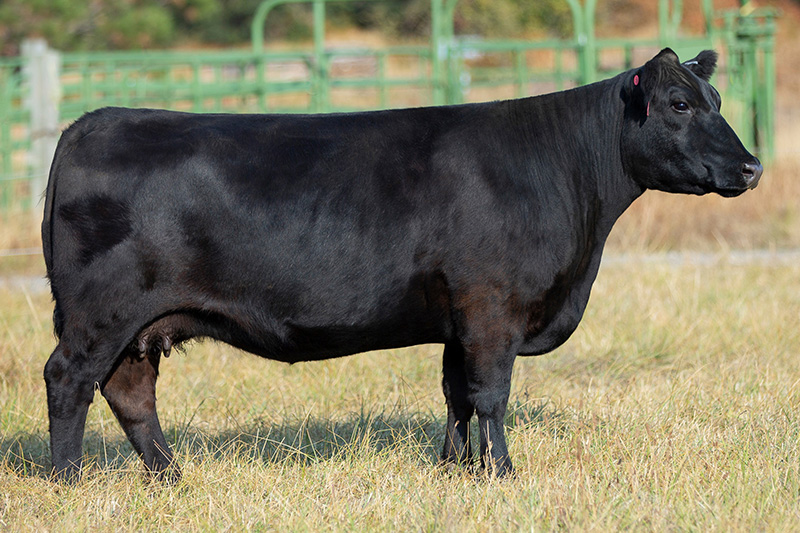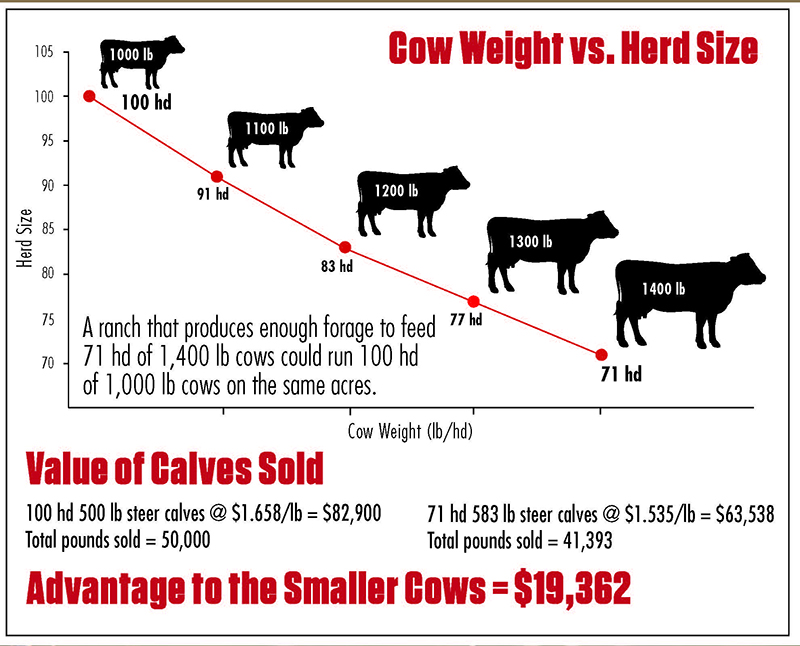
Deep Creek Seedstock
Why Aberdeen?
The average registered Angus cow weighs 1,400 lb. If you want to make replacement heifers that will mature as 1,100 lb cows - without sacrificing muscle and shape - there's only one way to get there - crossbreeding with American Aberdeen bulls.
The American Aberdeen crossbreeding advantage:
When evaluated on a per-acre unit of production, smaller cattle have a 20-37 percent advantage over larger cattle.
Are you ready for an American Aberdeen bull?
Easy on the eyes, easy to be around
The ideal fit for the grass-based family farm, American Aberdeen cattle are easy keepers that thrive on pastures of any size.
The American Aberdeen breed focuses on the traditional values that worked for granddad - and are still right for today.
Could this be the most efficient cow in America?
More cows on the same forage means more profit.
What are your biggest challenges? Feed and labor?
Taking into account all of the variables Mother Nature throws at you, and the growing value of pasture, the key factor you can control is cow size. Getting cow size and stocking rate right has a huge impact on the bottom line. Smaller cows mean more cattle on the same forage base. Spreading your fixed costs over greater numbers and reducing variable costs per head improves net profit.
The American Aberdeen crossbreeding advantage:
- Optimum-size cattle
- Ideal beef portion size for modern diets
- More ribeye per hundredweight
- Reduced labor and calving problems
- More pounds of beef per acre
- Adapted for grass-fed operations
When evaluated on a per-acre unit of production, smaller cattle have a 20-37 percent advantage over larger cattle.
Are you ready for an American Aberdeen bull?
Easy on the eyes, easy to be around
The ideal fit for the grass-based family farm, American Aberdeen cattle are easy keepers that thrive on pastures of any size.
The American Aberdeen breed focuses on the traditional values that worked for granddad - and are still right for today.
Could this be the most efficient cow in America?
More cows on the same forage means more profit.
What are your biggest challenges? Feed and labor?
Taking into account all of the variables Mother Nature throws at you, and the growing value of pasture, the key factor you can control is cow size. Getting cow size and stocking rate right has a huge impact on the bottom line. Smaller cows mean more cattle on the same forage base. Spreading your fixed costs over greater numbers and reducing variable costs per head improves net profit.

Whether you have five, 50 or 100 cows, the same principles of controlling cow size apply. Buying hay? Big cows eat more of it per head than moderate framed cows.

